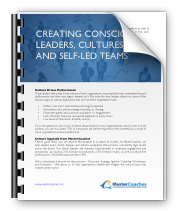My 25 year old son Dylan is a new teacher.This first opportunity is with adult education and I was quite impressed with
the leadership skills this young man mustered to meet the demands of this unusually challenging position. It’s a program geared for students completing GED’s and needing experience with job seeking skills, such as resume writing and interviewing. It also includes exposure to different career opportunities. The population is diverse and challenging.
When Dylan was first telling me about the challenges of teaching 30 self-paced students an array of basic skills in three days I thought I had some good suggestions. I was quickly schooled in the paradoxical realities created by legislators who apparently have little regard for connecting intentions with resources. But Dylan is creative and caring and he finds ways to deliver as much useful content as he can in the brief time allotted for students passing through the program. What I didn’t expect was the wisdom he relied on to create a space for this to happen.
When I said the population was diverse, I wasn’t referring to typical demographics. Some students are court-ordered. Some are under 18 with driver’s licenses so they are also required to take these classes. Others are seeking their GED or simply looking to round out their education with practical skills to help them get jobs. The motivations to be there vary as much as the foundations with which they show up. With up to 30 students in one room, self-paced and working on different topics, with only one teacher (or administrator, as Dylan describes the role, since time for actual teaching is minimal), classroom management is a major priority.
I was struck by the timeless wisdom my son shared with me.He recounted how one student baked a cake for Dylan’s birthday, how he makes it a point to say “good morning” to every student and remember their names, and how even the gang members show him respect. This is in contrast to his experienced counterpart, who will frequently be escorting students to the vice-principal’s office. Dylan says “You just have to treat them with respect. It’s the little things that count. I treat them like people.” The battle-worn veteran teacher will yell from behind his desk at a troublemaker, thus disrupting the class and calling out the gang member who now must save face.
Dylan described to me his approach: “I slowly get up and walk around the class, taking my time, stopping to help students as they work. I make my way to the disruptive student in a roundabout way, not drawing attention to him. When I get to him, I ask what he needs help with. I add that he must need some assistance, since he’s talking so loudly and apparently off track. I don’t say it sarcastically, but really trying to connect. Usually they appreciate the 1:1 and get on track. If not, the next time I just change their seats to eliminate the temptation. I’ve never needed to take anyone to the office. I don’t get back talk. I get a connection.”
Dylan’s Lessons:
- It’s the little things that count. Those small gestures add up and they are remembered.
- Showing respect is paramount. You get what you give.
- You need to care. Remember why you’re there and do your best to fulfill on that.
- People know when you’re being authentic. It’s worth taking the time to find that balance between making an honest connection and maintaining needed boundaries.
- Enjoy your work. That connection (or lack of) to what you’re doing shows. It makes a difference.
I found the lessons from this young man to be worth sharing. It’s easy for veteran leaders to get jaded and lose sight of the fact that’s happened. Expedience overshadows our original intentions. We forget that outcomes are invariably a consequence of human interaction, and people prefer to be handled with care. We forget the golden rule.
Learn what teachers make in 3 minutes, here, you won’t be disappointed!
Coaching Inquiries:
- To what degree have you been intentional about “the little things” in your day to day interactions at work?
- Recall times in your own life where the little things made a difference to you. How can you pay it forward today?
- In what ways is “respect” a value that is consistently manifested in your company culture? If it isn’t, how might that make a difference and what new actions can you take to start that process? Inquire similarly about other values mentioned above, like caring and authenticity (or other values you hold dear).
Evolving company cultures has been shown to increase Key Performance Indicators by 300-500%! Contact us to discuss how this could apply at your organization.








Social Links